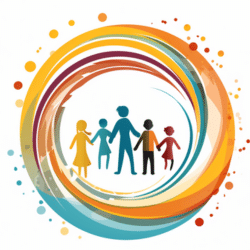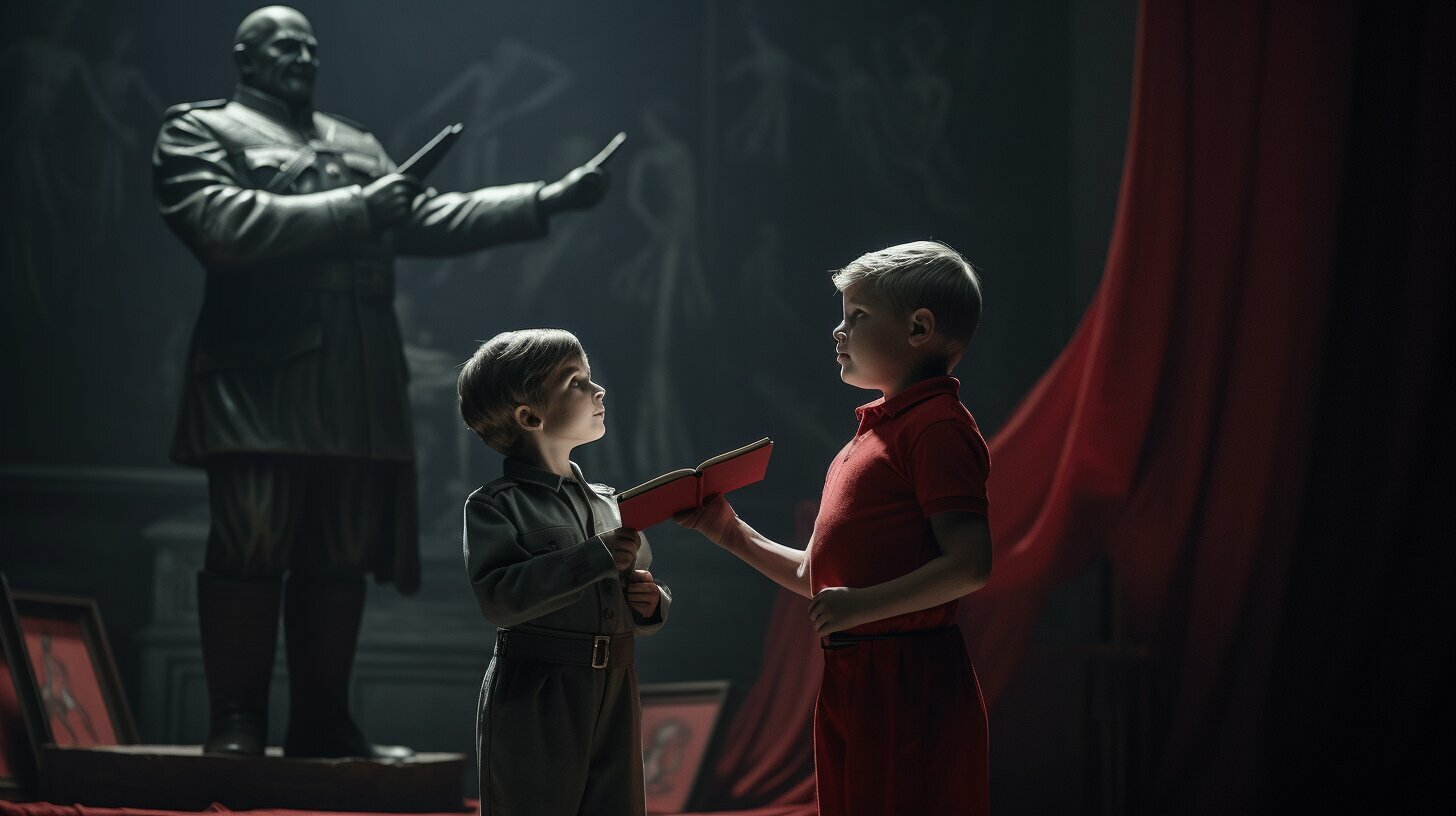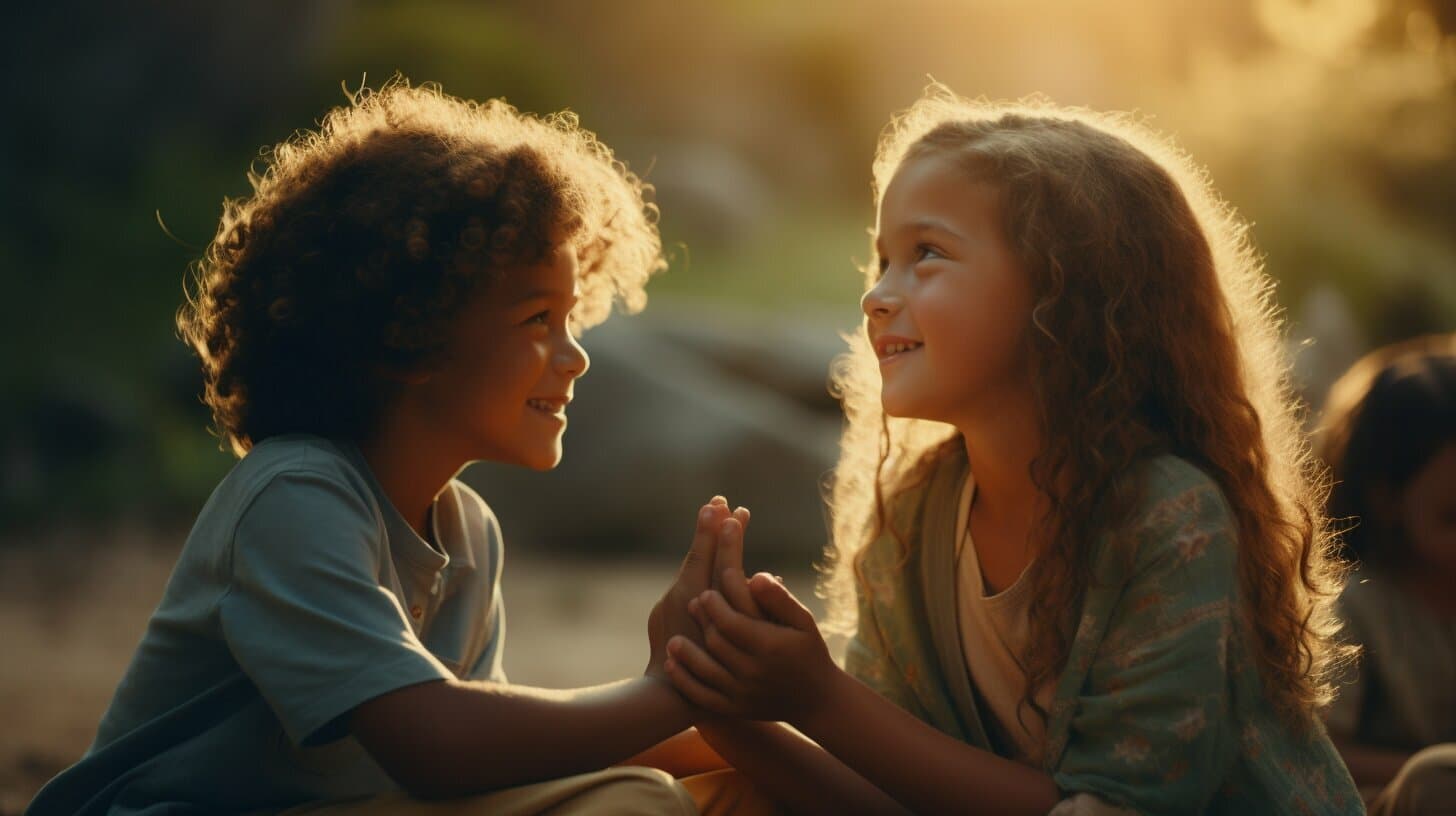As a parent or caregiver, it’s natural to want to shield your child from the complexities of the world. However, when it comes to the Israeli Palestinian conflict, it’s important to provide children with age-appropriate explanations that promote empathy and understanding.
In this guide, we’ll provide you with a simple and easy-to-follow explanation of the Israeli Palestinian conflict that you can use to educate your child. We’ll cover the historical context of the conflict, explain the different perspectives held by Israelis and Palestinians, and provide tips for promoting peace and understanding.
Whether you’re a seasoned educator or a concerned parent, this guide will equip you with the knowledge and resources you need to explain the Israeli Palestinian conflict to a child in a way that’s informative, engaging, and respectful.
Key Takeaways:
- It’s important to provide children with age-appropriate explanations of the Israeli Palestinian conflict.
- Educating children about the conflict promotes empathy, understanding, and peacebuilding skills.
- We’ll provide a simplified overview of the historical context and explore the different perspectives held by Israelis and Palestinians.
- We’ll offer suggestions for promoting peace and understanding, as well as age-appropriate resources and activities.
Why is it Important to Teach Kids about the Israeli Palestinian Conflict?
Teaching children about the Israeli Palestinian conflict is essential for several reasons. First, it promotes empathy and understanding among young generations, which can help build a more peaceful future. By educating children about the different perspectives held by Israelis and Palestinians, we can encourage them to see the conflict from multiple angles and better appreciate the complexity of the issue.
Second, providing balanced and unbiased information to children is crucial for fostering critical thinking skills. By exposing children to diverse viewpoints, we can help them learn how to assess information critically and form their own opinions.
Finally, teaching kids about the Israeli Palestinian conflict is an act of global citizenship. By engaging with complex issues such as this, we can help children develop a sense of social responsibility and encourage them to participate in creating a better world for everyone.
To learn more about how to explain the Israeli Palestinian conflict to a child, continue reading our guide below.
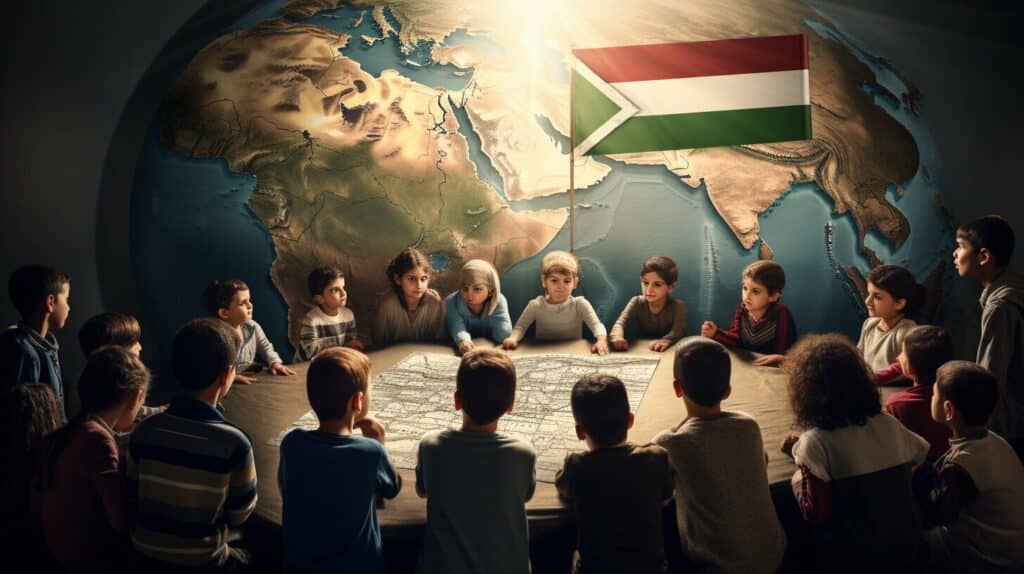
Understanding the Historical Context
To explain the Israeli Palestinian conflict to a child, it is essential to understand the historical context that led to the current situation. The conflict traces its roots back to the late 19th century when Zionism emerged as a political movement advocating for the establishment of a Jewish homeland in Palestine. However, Palestine was already inhabited by Arab Palestinians who had lived there for centuries.
The situation became more complicated after World War I when the British took control of Palestine and pledged to support both Jewish and Arab aspirations in the region. Nevertheless, in 1947, the United Nations approved a plan to partition Palestine into two states, one Jewish and one Arab. While Jewish leaders accepted the plan, Arab leaders rejected it, leading to a war between the two sides.
As a result of the war, Israel was established in 1948, and hundreds of thousands of Palestinians became refugees. Several wars and conflicts have followed since then, with Israel annexing more land and building settlements in the West Bank and East Jerusalem- areas that Palestinians also consider their own. Additionally, Palestinians have been fighting for their independence and statehood, with many international actors recognizing their right to self-determination.
This brief overview of the historical context of the Israeli Palestinian conflict provides an essential foundation for understanding the tensions and complexities of the situation.
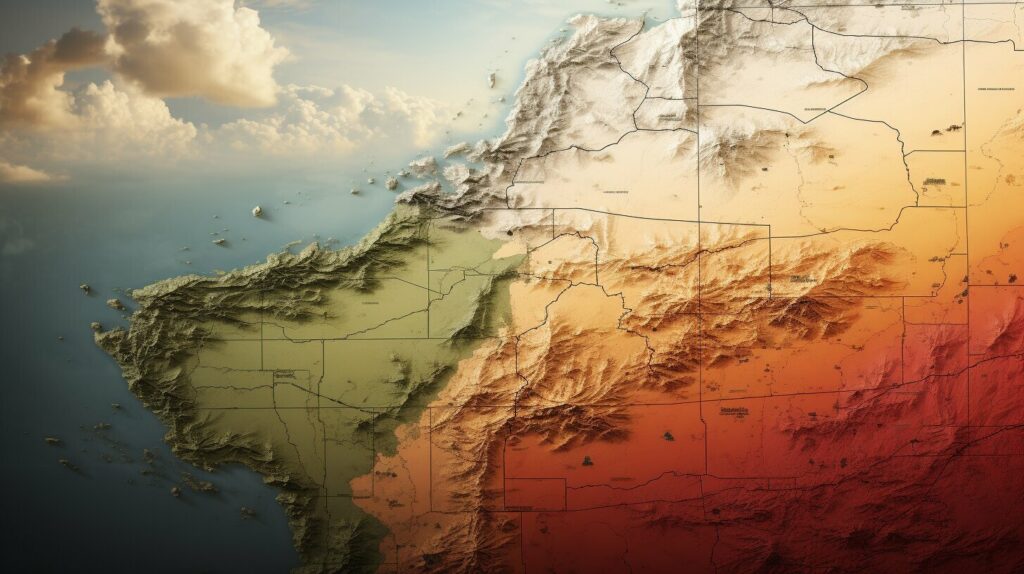 Simplified map of the Middle East
Simplified map of the Middle EastExplaining the Different Perspectives
One of the key elements to understanding the Israeli Palestinian conflict is to recognize that there are multiple perspectives involved. The conflict has deep roots in history and religion, and both Israelis and Palestinians have their own beliefs, values, and aspirations.
From the Israeli perspective, the conflict is about protecting their homeland and ensuring their security in a region that has been hostile towards Jews for centuries. They believe that Israel has a legitimate right to exist as a Jewish state and that they have historical and biblical ties to the land. Many Israelis also feel that they have been unfairly vilified by the international community and that their actions in the conflict are justified.
On the other hand, Palestinians view the conflict as a struggle for their own national identity and sovereignty. They believe that their land has been taken from them through colonization and occupation, and that they have the right to self-determination. Many Palestinians feel that they have been marginalized and oppressed by Israel, and that their human rights have been violated.
It’s important for children to learn about these different perspectives and to recognize that there is no single solution to the conflict. By understanding the concerns and aspirations of both sides, children can develop empathy and critical thinking skills, which are crucial for promoting peace and understanding in the world.
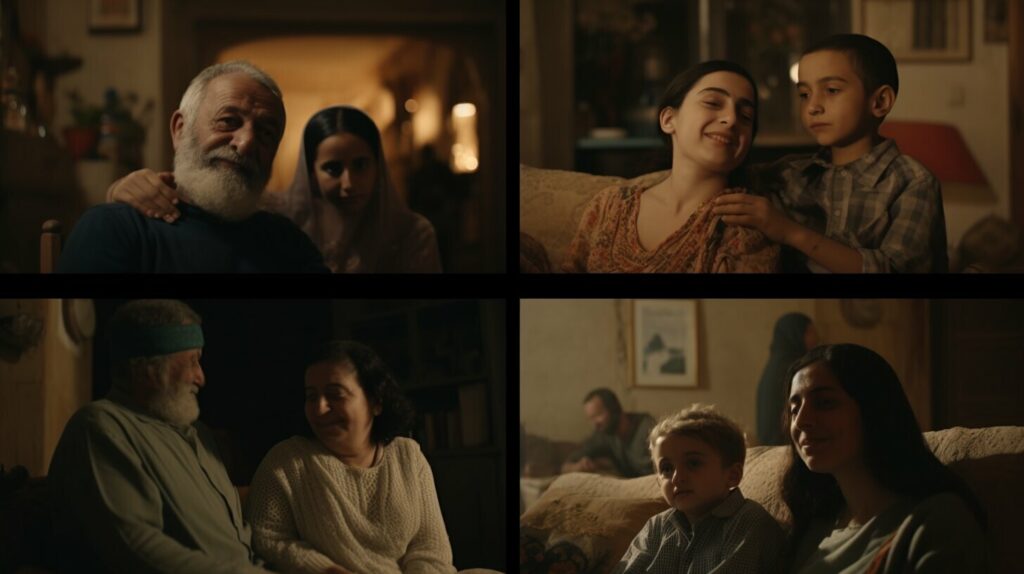
As a parent or educator, you can encourage children to analyze and question the information they receive about the conflict, and to keep an open mind when discussing the different perspectives. By doing so, you can help them develop a nuanced and balanced understanding of the issue.
The Concept of Land Ownership
Understanding the concept of land ownership is crucial in comprehending the Israeli Palestinian conflict. Both Israelis and Palestinians have strong cultural and historical ties to the land, which has caused territorial disputes for many years.
“This land is our land, it has been passed down to us from our ancestors, and we will not give it up,” says one Israeli citizen.
“We have lived here for generations, and this land is our home. We will not be forced to leave,” adds a Palestinian.
These sentiments reflect the deep attachment that both sides have to the land. For Israelis, the land represents their ancestral homeland, where Jewish culture and religion were born. For Palestinians, the land represents their home, where their families have lived for generations.
The conflict also stems from differing interpretations of history and religious texts. Israelis claim that the land has been their rightful inheritance since ancient times, while Palestinians argue that they have been living on the land for centuries and have been unjustly displaced.
It is important to note that neither side is entirely right or wrong in their claims to the land. The issue is complex and deeply ingrained in the identity and culture of both Israelis and Palestinians.
The international community recognizes the complexity of the issue and has attempted to broker peace agreements that address the territorial claims of both sides. However, finding a solution that satisfies everyone has proven to be a challenging task.
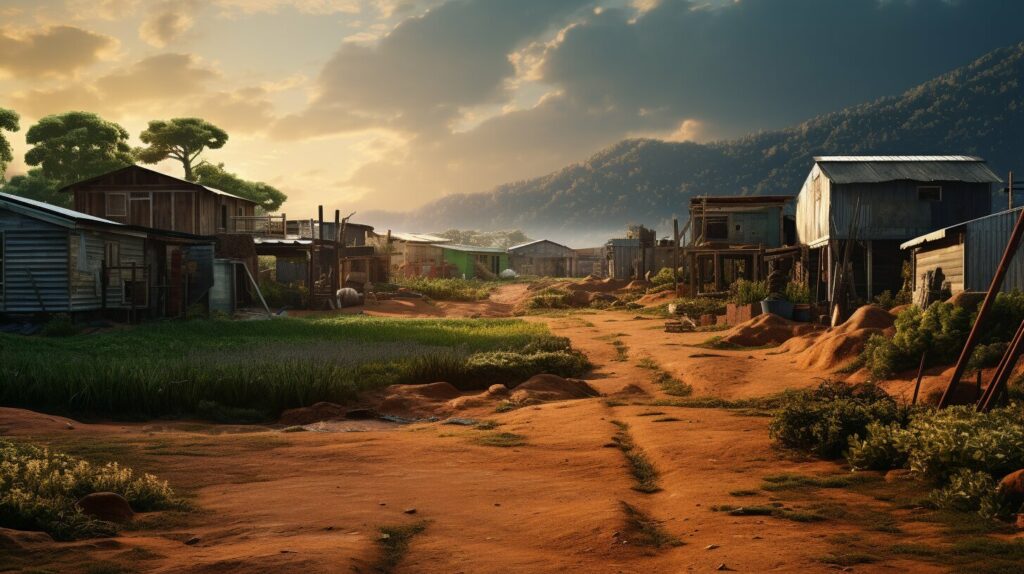
As you discuss the Israeli Palestinian conflict with children, it is important to help them appreciate the complexity of the issue regarding land ownership. Encourage them to ask questions, reflect on different perspectives, and understand that there are no easy answers.
Impact on Daily Life
It can be difficult for children to understand how the Israeli Palestinian conflict affects the daily lives of people in the region. However, it is important for them to have an idea of what people are going through on both sides of the conflict.
For example, people living in Gaza have limited access to resources such as food, water, and electricity due to the ongoing blockade. Children in Gaza have limited opportunities for education, healthcare, and play. Many people in Israel live in fear of rocket attacks or terrorist attacks. They also have to deal with the physical and emotional toll of military service.
It’s important to remember that people on both sides of the conflict are affected by the violence and instability.
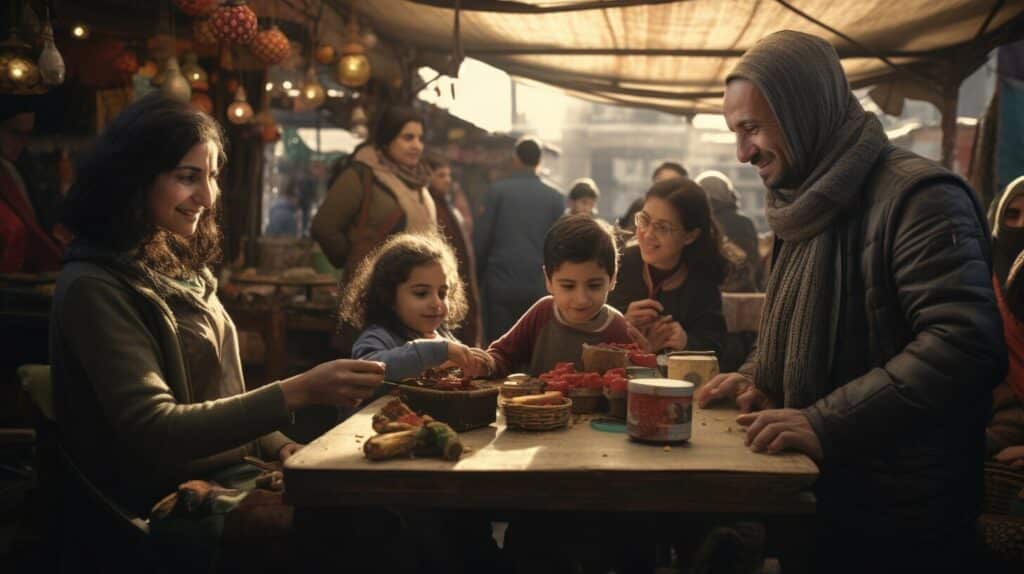
Promoting Peace and Understanding
It is crucial to promote peace and understanding between Israelis and Palestinians, and children can play an essential role in fostering a peaceful future. As a parent or educator, you can help your child develop empathy and understanding towards others by providing them with age-appropriate information about the Israeli Palestinian conflict.
One way to promote peace and understanding is by supporting initiatives and organizations that work towards reconciliation. For example, Seeds of Peace is a nonprofit organization that brings together young leaders from conflict regions, including Israelis and Palestinians, to engage in dialogue and build meaningful connections. By supporting organizations like Seeds of Peace, you can help create a more peaceful and just world.
By educating children about the Israeli Palestinian conflict, you can help them develop a deeper understanding of the complexities of the conflict. This understanding can help them empathize with the challenges faced by individuals on both sides and promote a more peaceful future. Remember, peacebuilding starts with each one of us, and by teaching your child about the Israeli Palestinian conflict, you are helping to create a better world.
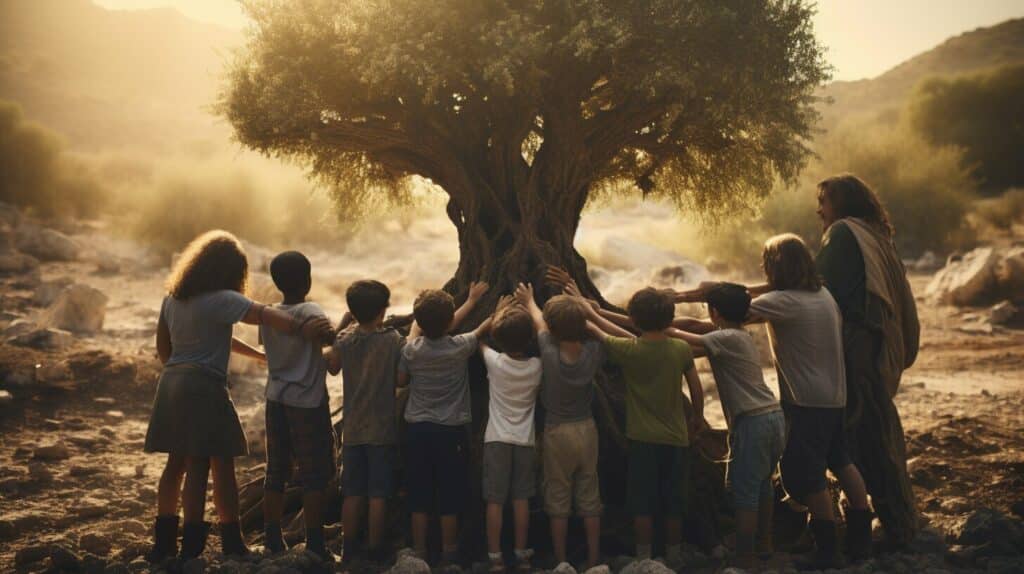
Recognizing Similarities and Differences
It’s essential to help children understand that despite the differences in culture and religion, Israelis, and Palestinians share many similarities. Both cultures have rich histories, with traditions and cuisine that reflect their unique heritage.
It’s important to emphasize that regardless of the conflict, both Israelis and Palestinians want peace and security for their families and communities. By recognizing these similarities, children can develop a more nuanced and empathetic understanding of the issue.
At the same time, it’s crucial to explain the differences between Israelis and Palestinians, as this is key to understanding the conflict’s complexity. By learning about the distinct perspectives and concerns of each side, children can grasp the conflict’s nuances and become more informed advocates for peace and justice.
As Nobel Peace Prize laureate Desmond Tutu said, “We are different so that we can know our need of one another.” Emphasizing the differences while recognizing the similarities can help children develop a more empathetic and compassionate understanding of the Israeli Palestinian conflict.
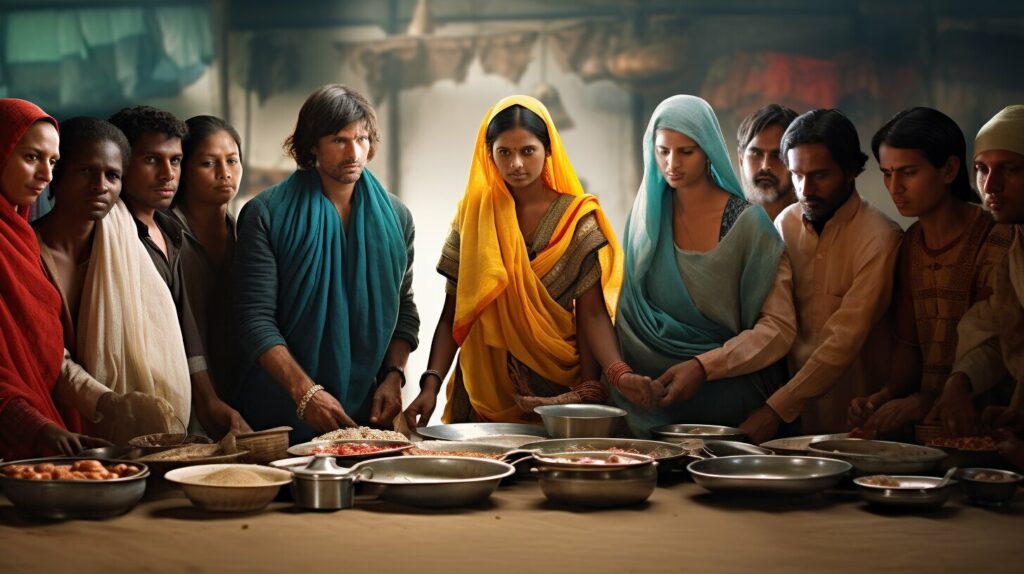
Encouraging Dialogue and Open-Mindedness
When discussing the Israeli Palestinian conflict with children, it is important to emphasize the value of open-mindedness and respectful dialogue. Encouraging children to ask questions and listen to different perspectives can help them develop a deeper understanding of the issue and promote empathy for those affected by the conflict.
You can start by explaining to your child that the conflict is complex and that there are many different opinions and viewpoints held by Israelis and Palestinians. Encourage them to ask questions and be curious about what they learn. You can also suggest that they share their own thoughts and feelings on the matter, creating a safe and open space for conversation.
It is important to listen actively and without judgment when discussing the conflict with children. This can help them feel heard and valued, while also allowing you to better understand their perspective.
Initiating Dialogue
To initiate dialogue, you can start by asking open-ended questions such as:
- What do you know about the Israeli Palestinian conflict?
- How do you feel about what you have heard?
- What questions do you have?
Use these questions as a starting point and let the conversation flow naturally. Encourage your child to express their thoughts and feelings without fear of judgment.
Being Respectful
It is important to teach children to be respectful when discussing the conflict with others. Encourage them to avoid name-calling or making assumptions based on stereotypes or generalizations. Remind them that every person is an individual with their own opinions and experiences.
Encourage them to use “I” statements instead of “you” statements, such as “I feel that…” instead of “You are wrong because…”. This can help to facilitate a more productive and respectful conversation.
By promoting open-mindedness and respectful dialogue, you can help your child develop the skills they need to engage in meaningful conversations about the Israeli Palestinian conflict and other complex issues. In turn, this can help to build a more peaceful and understanding world.
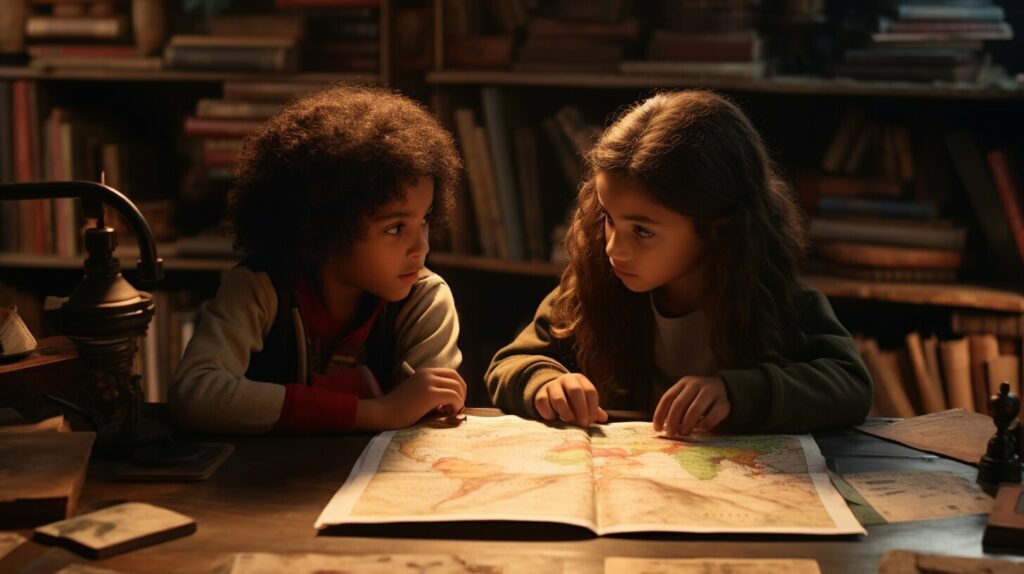
Emphasizing the Power of Empathy and Compassion
One of the most important things to remember when learning about the Israeli Palestinian conflict is the power of empathy and compassion. It’s easy to get caught up in the complexities of the political situation, but it’s crucial to remember that real people are affected by this conflict every day.
By practicing empathy, you can put yourself in the shoes of others and try to understand their experiences and perspectives. This can help you develop a deeper understanding of the conflict and the people involved.
Compassion is also essential in promoting peace and understanding. By showing empathy and compassion towards individuals affected by the conflict, you can help create an atmosphere of respect and open-mindedness. This, in turn, can help foster a sense of cooperation and collaboration, laying the foundation for a peaceful future.
To practice empathy and compassion, try to engage in conversations with people from both sides of the conflict. Listen to their stories, ask questions, and try to understand their experiences without judging them. You can also read books, watch documentaries, and attend events that promote empathy and understanding.
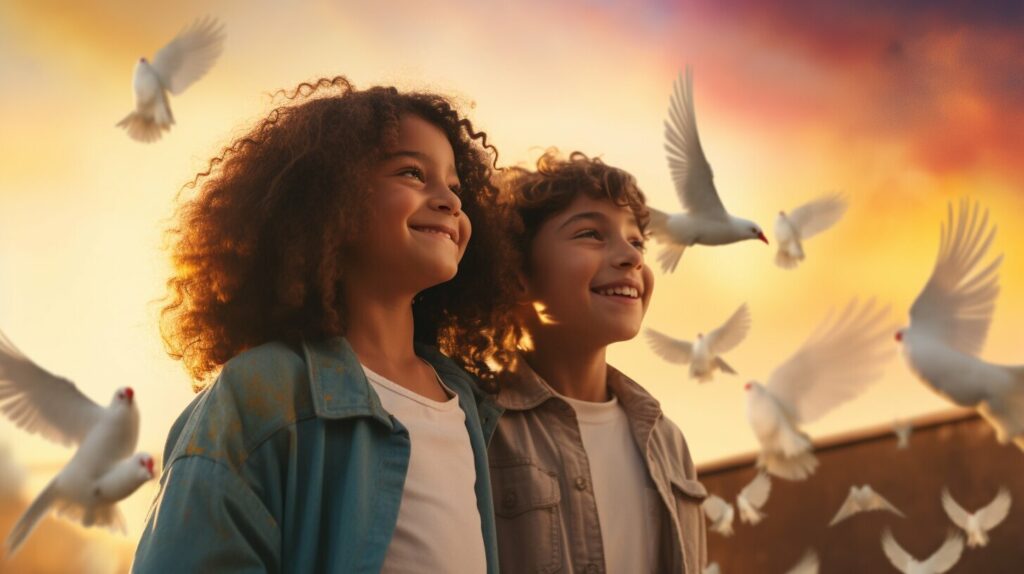
Remember, empathy and compassion are powerful tools that can help bridge divides and create a more peaceful world. By practicing these values, you can play a crucial role in promoting peace and understanding in the Israeli Palestinian conflict.
Age-Appropriate Resources and Activities
Teaching children about the Israeli Palestinian conflict can be a challenging task. You want to provide the right information in a way that is understandable and engaging. Here are some age-appropriate resources and activities you can use to help kids learn about the conflict:
For Ages 5-8
- Let’s Talk About Israel and Palestine by Deborah Weston is an illustrated book that explains the basics of the conflict in a child-friendly way.
- The game My Homeland allows kids to create a virtual community and experience what it’s like to live in the region.
- Organize a cultural exchange event, where kids from different backgrounds come together to share their traditions and experiences.
For Ages 9-12
- The Lemon Tree: An Arab, a Jew, and the Heart of the Middle East by Sandy Tolan is a powerful book that explores the human side of the conflict through personal stories.
- The documentary Promises follows the lives of seven Palestinian and Israeli children who live in and around Jerusalem.
- The website peaceproject.com offers a range of educational resources and activities for kids to learn about the conflict and promote peacebuilding skills.
For Ages 13-18
- Mornings in Jenin by Susan Abulhawa is a novel that explores the experiences of a Palestinian family over three generations.
- The film 5 Broken Cameras documents a Palestinian farmer’s nonviolent resistance to an Israeli settlement in the West Bank.
- The website handinhandk12.org showcases a bilingual and integrated Israeli-Palestinian school, with videos and resources to explore.
These resources can help children gain a deeper understanding of the conflict and develop critical thinking and cross-cultural communication skills. Encourage kids to ask questions, share their thoughts, and explore different perspectives.
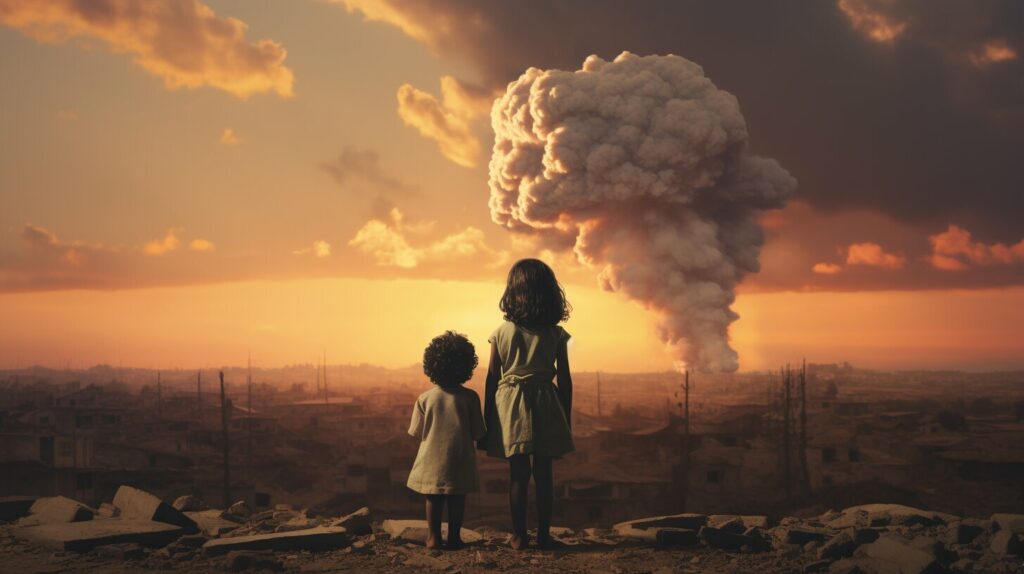
Conclusion
By educating children about the Israeli Palestinian conflict, you are promoting empathy, understanding, and peacebuilding skills among young generations. It is crucial to provide balanced and unbiased information to children, in a way that is age-appropriate and easy to understand.
Remember, teaching kids about the Israeli Palestinian conflict is not only important for the conflict itself but for promoting peace and understanding in the world. By recognizing similarities and differences between Israelis and Palestinians and encouraging open-mindedness and respectful dialogue, children can foster a sense of understanding and compassion towards individuals affected by the conflict.
There are many age-appropriate resources, books, and activities that can further children’s understanding of the Israeli Palestinian conflict. By utilizing these resources, you can help children engage with the topic in an accessible and engaging way.
Overall, the Israeli Palestinian conflict is a complex issue that requires thoughtful and balanced discussions. By empowering children with knowledge and skills, we can pave the way for a more peaceful future.
How Can I Explain Complex Issues to My Child in a Way They Can Understand?
Explaining god to a child can be challenging, considering the complexity of this concept. To make it understandable, simplify the explanation by using relatable examples and analogies. Presenting ideas in a way that aligns with the child’s knowledge and experiences can help them grasp the essence of this profound concept in a manner suitable for their understanding.
Can You Use Similar Strategies to Explain Python R and the Israeli Palestinian Conflict to a Child?
Python r explained for children is a simplified way to introduce programming concepts to young learners. Similarly, explaining the Israeli Palestinian conflict to children requires tact and simplicity. Both topics can be broken down into digestible pieces, allowing children to grasp the essential elements without feeling overwhelmed by complex details.
FAQ
Q: How do I explain the Israeli Palestinian conflict to a child?
A: Explaining the Israeli Palestinian conflict to a child can be challenging, but it’s important to provide age-appropriate information. Start by giving them a basic understanding of the historical context and the perspectives held by Israelis and Palestinians. Emphasize the importance of empathy, understanding, and promoting peace.
Q: Why is it important to teach kids about the Israeli Palestinian conflict?
A: Teaching kids about the Israeli Palestinian conflict promotes empathy, understanding, and peacebuilding skills. It helps them recognize the complexities of the issue and fosters a sense of global citizenship. Additionally, it’s crucial to provide balanced and unbiased information to develop critical thinking skills.
Q: How can I explain the historical context of the Israeli Palestinian conflict to children?
A: To explain the historical context of the Israeli Palestinian conflict to children, provide a simplified overview of key events and factors that have contributed to the ongoing tensions. Focus on explaining the roots of the conflict in a way that is easy for children to understand.
Q: What are the different perspectives in the Israeli Palestinian conflict?
A: The Israeli Palestinian conflict involves different perspectives held by Israelis and Palestinians. Each side has their own concerns, aspirations, and grievances. It’s important to highlight the complexity of the issue and encourage children to understand and respect different viewpoints.
Q: How does land ownership relate to the Israeli Palestinian conflict?
A: Land ownership is a significant aspect of the Israeli Palestinian conflict. Explaining the historical claims and territorial disputes can help children understand the importance of land in the conflict’s dynamics.
Q: How does the Israeli Palestinian conflict impact daily life?
A: The Israeli Palestinian conflict affects the daily lives of people in the region in various ways. It influences access to resources, movement restrictions, and creates challenges due to violence and instability. Helping children empathize with the impact of the conflict on individuals is important.
Q: How can we promote peace and understanding between Israelis and Palestinians?
A: Promoting peace and understanding between Israelis and Palestinians is crucial. Children can play a role in fostering a peaceful future by learning about reconciliation initiatives and organizations. Encouraging dialogue, empathy, and compassion can help build bridges between different communities.
Q: What similarities and differences exist between Israelis and Palestinians?
A: Israelis and Palestinians share many similarities in terms of common human values, cultural heritage, and traditions. It’s important to highlight these similarities while acknowledging the differences to promote understanding and empathy among children.
Q: How can children engage in respectful dialogue about the Israeli Palestinian conflict?
A: Encouraging children to engage in respectful dialogue is important. Teach them to ask questions, listen to different perspectives, and approach discussions with an open mind. Emphasize the value of respectful communication and understanding differing viewpoints.
Q: Why is empathy and compassion important in understanding the Israeli Palestinian conflict?
A: Empathy and compassion are essential in understanding the Israeli Palestinian conflict. Encouraging children to empathize with individuals affected by the conflict helps them develop a deeper understanding and promotes a more compassionate approach to global issues.
Q: What age-appropriate resources and activities can help children learn about the Israeli Palestinian conflict?
A: There are various age-appropriate resources, books, and activities available to help children learn about the Israeli Palestinian conflict. These resources cater to different age groups and provide engaging and accessible information to enhance children’s understanding.
